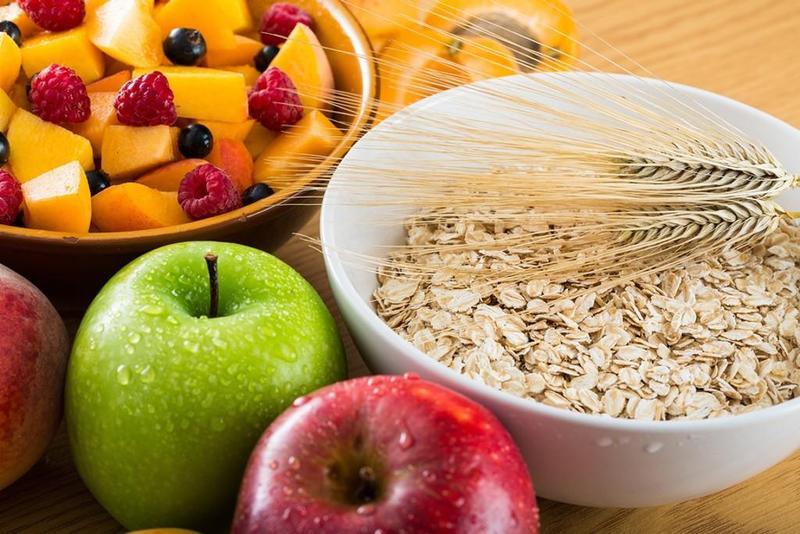Meeting Dietary Needs If You Have Lung Cancer
Meeting Dietary Needs If You Have Lung Cancer
The food plan for achieving adequate nutrition in each stage of lung cancer varies depending on the person. If you have lung cancer, your nutritional needs may shift over the course of treatment. You’ll want to work closely with your doctor during to make sure you’re getting proper nutrition and to avoid foods that may be detrimental.
Diet and healing cell damage
Eating balanced meals that include a wide range of healthy foods can help reduce the risk of cancer. If you’ve already received a lung cancer diagnosis, maintaining a healthy weight and diet may become more complex.
Depending on your treatment plan and overall health, your nutritional needs may change over time. Eating nutritious, vitamin-rich food, such as vegetables and fruits, can help heal cell damage. Foods containing lots of protein can also help promote healing.
A good rule of thumb is to eat five servings of vegetables and fruits daily, plus protein with each meal. Complex carbohydrates, like those in whole wheat bread, and other nutritious foods, such nut butters and beans, may also be good choices.
How does treatment impact your diet?
Lung cancer treatments, such as chemotherapy and radiation, may have side effects that make it harder to eat. This includes:
mouth sores
tenderness in the throat
difficulty swallowing
diarrhea
constipation
nausea
vomiting
a loss of appetite
If you’re experiencing side effects, consult your doctor. They may be able to prescribe a medication to help alleviate your symptoms. They may also be able to make recommendations about which foods you can try during this time.
They may recommend:
opting for a bland diet, especially if you have an upset stomach or mouth discomfort
avoiding tart, highly acidic foods that may irritate the mouth and throat
choosing soft or semisoft foods if your throat is tender or if you have trouble swallowing
supplementing meals with highly nutritious drinks or shakes
avoiding raw fruits and vegetables, and foods that are high in fiber, spicy, fatty or greasy if you’re experiencing diarrhea
a high-fiber diet if you have constipation
avoiding high-fat foods, red meat, and alcoholic beverages
Many people find that eating four or five small meals during the day, instead of three larger meals, is the most comfortable way to meet their nutritional and caloric needs.
It may also help to boil vegetables until they’re soft and to opt for thickened drinks and soups. These can be easier to swallow than thin liquids.
Sipping water between meals or drinking warm tea can help maintain adequate nutrition. This may be important during treatments such as chemotherapy.
Food safety tips
Chemotherapy and other treatments for lung cancer can compromise your immune system. This can make you more susceptible to infections and food-borne illnesses, such as Escherichia coli. Because of this, it’s especially important that any food you eat is free from contaminants.
Do the following to reduce your risk of eating contaminated food:
Wash your hands thoroughly before handling food.
Wash fruits and vegetables, taking special care with leafy greens that may house dirt.
Clean surfaces, such as cutting boards, bowls, and utensils, thoroughly after using them to prepare raw meats. Don’t reuse them to prepare other ingredients until you’ve washed them in hot water.
Don’t reuse any liquids used to marinate raw meat.
Don’t eat undercooked or raw meat, eggs, poultry, fish, or seafood.
Don’t eat undercooked egg dishes, such as poached or soft-boiled eggs.
Don’t eat anything that contains raw egg, such as cake batter.
Don’t drink unpasteurized fruit juice.
Avoid unpasteurized dairy products, such as raw milk, or cheese made from unpasteurized milk.
You should avoid these foods, which may harbor bacteria, contaminants, and mercury:
pate
sushi
sashimi
raw oysters
salad bar items
smoked or dry-cured fishes and meats
raw sprouts, such as alfalfa sprouts
any fish that’s high in mercury, such as shark, or solid white tuna
Meals for you to try Meal planning can help you avoid the stress of last-minute cooking and help you to get proper nutrition. Here are some ideas for meal plans: Blueberry muffins are rich in antioxidants and can make an excellent breakfast or midmorning snack. Spread them with nut butter, and serve them with scrambled eggs for a delicious meal. For lunch, grill chicken and add it to a delicious mixed green salad. This meal is high in protein and vitamins. Give the meal some added punch with a glass of sparkling water scented with lemon zest. For a midday snack, slice up red and green apples and serve them with cinnamon and walnuts for a protein and vitamin power boost. Broiled salmon can be the centerpiece of a nutritious, easy-to-prepare dinner. Consider adding steamed spinach with garlic for more antioxidants and vitamins. You can also drizzle olive oil on high-fiber brown rice or quinoa for a side dish. You should also drink lots of fluids both at and between meals.
The bottom line
Maintaining good nutrition while having lung cancer treatment can be a powerful tool in your overall treatment. It may help you to regain strength and can also give you something to look forward to during the day. Even if the side effects from treatment are challenging, striving to eat right can be empowering.
by Corey Whelan For Healthline
Be the first to post a message!
